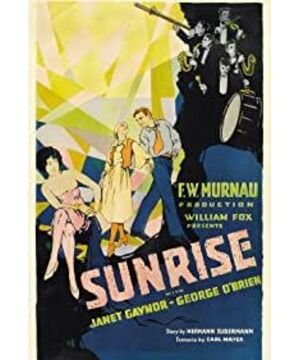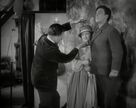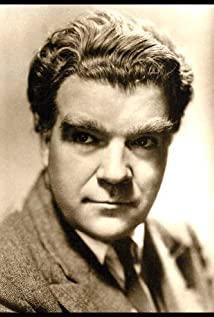A man who has a farm and a good wife in the country plans to push his wife into the water during a cruise so that he can move to the city with his mistress, but he repents and stops in the last minute. On that very day the couple catch a train to the city and begins their trip of adventure and reconciliation. A simple comparison will tell that the city seems much more charming than the country: while country life is either about the humdrum everyday trivia of the married couple, or the dark, furtive extramarital dating, the city is glamourous, with leisurely cafes, lively restaurants and happy weddings in the church on the street, its doors open to anybody, just as how a full-screen intertitle reads: “Come to the city!” [1]Thus, the city, with all its enchantments, captivates the naive couple from the countryside. Indeed, the couple enjoy themselves in the restaurant; the man becomes a star for catching a pig, and his wife wins applaud for dancing in such an adorable way . But all this is momentary and illusional. The dazzling traffic that traps them, the headless sculpture that makes fools of them, the awkwardness of piecing together a stack of loose change to pay for the dinner, constantly reminding the audience that the city's welcoming image is just a false appearance. The sexuality of the city is even more dangerous: it teaches young ladies to smoke and become mistresses, it allows that stranger in the barber shop to court your wife, and the manicurist to seduce your husband. The film thus educates the populace: “city” is another word for “sinfulness”!For this reason, the countrymen do not belong to the city, and will surely return to the country. However, the naive couple from the country have already been “contaminated” by the city, and won't be allowed to go back without paying a price. While the former cruise—during which the man attempts to kill his wife—symbolically leads them to the sinful city, the cruise on their way back must serve to cleanse them from the sins they have absorbed from the city. Fortunately, the couple are finally given a second chance to start their life in the country—the man flings himself to the arms of his angelic wife, and will never let her go. The little shop girls feel so thankful that they don't have to be rescued from water to live in the countryside with their husbands. Despite the ongoing urbanization,now they will think twice before they say that they want to go to the city. They'd better also keep an eye on their husbands, and cast a stern look if he betrays the slightest wish to move to the city.
[1] At 00:15:00 of the film, during the sinful extramarital dating, the intertitle spreads the full screen: “Leave all this behind…Come to the City!”
View more about Sunrise reviews











